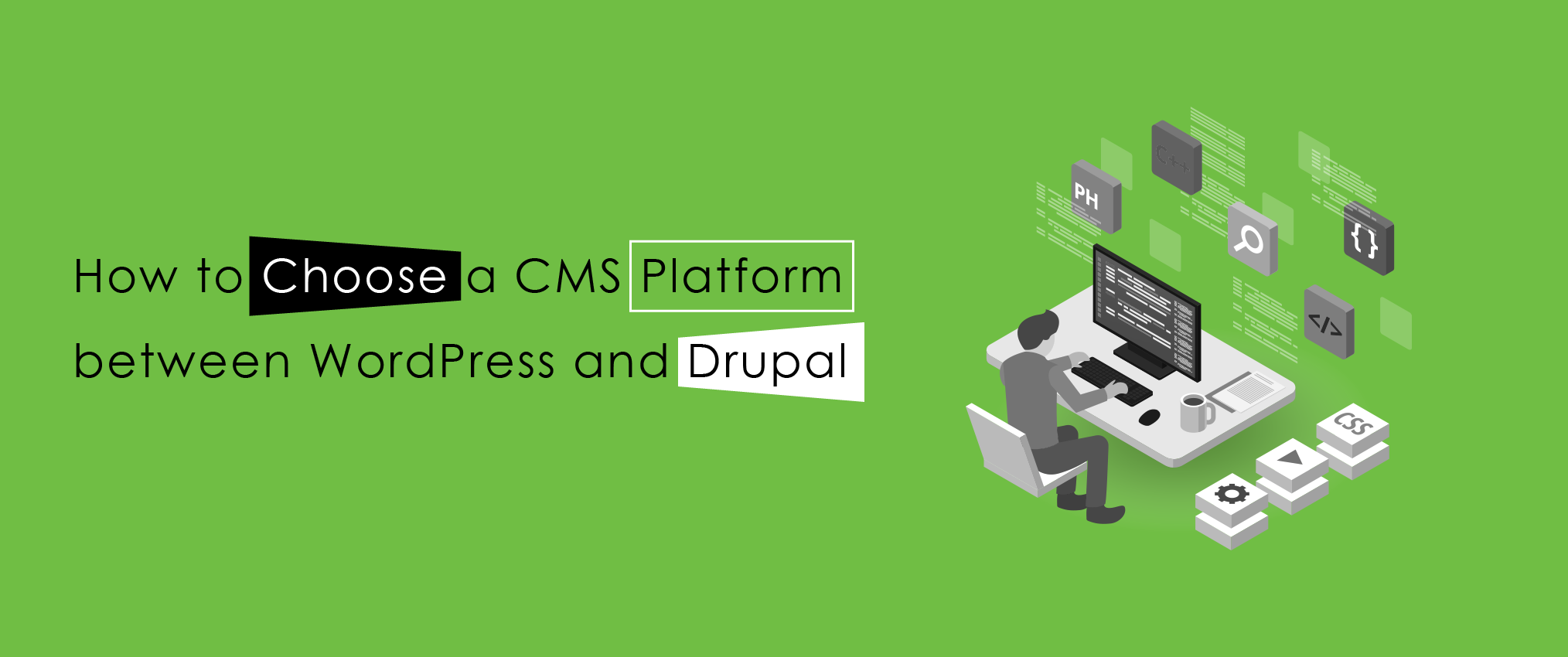Content Management System (CMS) platforms such as WordPress and Drupal have amassed massive popularity in this digitally transforming era. The global technological progress amplified the same through its breakneck pace. A programmer who is not entirely proficient with coding can easily use these platforms to professionally build and manage a website.
 This is why organizations partner with an outsourcing website development company specializing in Drupal and WordPress development services due to the high convenience and easiness it offers in development and in managing their website content.
This is why organizations partner with an outsourcing website development company specializing in Drupal and WordPress development services due to the high convenience and easiness it offers in development and in managing their website content.
Among the two, WordPress is more popular and easier to use whereas Drupal requires a seasoned programmer’s expertise. Although, both platforms offer significant features and unique advantages and the choice is always up to you as to what you need. Let’s explore both and help you gain a better perspective and find our which suits your requirements.
- Both are open-source, meaning they free and can be used as per your requirements.
- They are also affordable and offers extensive personalization options.
- They are backed by a solid developer community and always provide the latest and most recent updates and resolution to any user queries.
- Compared to other content management systems, they offer exceptional convenience and ease of use.
The initial platform investment for WordPress development services is free, but costs will slowly increase when you try to register domains, or when adding premium plugins, themes, or security features. But it all comes down to your choice of whether you require more sophistication. Otherwise, WordPress is the cheaper of the two with a standard package.
- Drupal development services always require seasoned or proficient developers. Although long-term scalability and personalization for further website development or advancement are more affordable with Drupal.
- The learning curve of WordPress is comparatively easier with its intuitive and user-friendly interface that even favors non-technical persons. Drupal is quite complex for non-programmers to learn, especially when it comes to its content creation process.
- On the personalization end, both platforms offer a multitude of excellent resources for greater capabilities. WordPress generally offers thousands of free themes and plugins for a huge scope of customization compared to Drupal’s slightly lower number of themes and modules.
- Drupal’s themes come with built-in functionalities, offering more flexibility and efficiency, especially in organizing the huge volume of content or data. But Drupal requires in-depth proficiency for custom website development.
- The security features of both content management systems are high. But WordPress is more susceptible to hacking or malware build-up when integrated with (unverified) third-party plugins. Drupal on the other hand is more secure because it rarely depends on (unverified) third-party modules or extensions. It already possesses in-built customization functionalities in its themes, thereby eliminating the need for any third-party add-ons
- Drupal offers more flexibility for customizing various content types while WordPress does not have any custom post types.
- WordPress offers five basic user roles for authorized access/control/user permissibility while Drupal has a built-in system to create new roles with individual user permissions.
- Core multilingual support in WordPress can only be done with third-party plugins while Drupal 8 has it built-in to its core.
- Drupal’s taxonomy system is highly flexible and can handle voluminous content/data when compared to WordPress.
These are the differences between WordPress and Drupal. It’s always better to outsource CMS web development services to an expert website development company as it’s a cost-effective alternative to your in-house plan, even if you require extensive website personalization or scalability.
Always choose the one that best fits your agenda – whether it’s for long term or short term, budget, need for additional functionality, scalability, future personalization, user experience, etc.
If you go for WordPress development services, you will only need to invest a low initial cost, has an easier learning curve, offers plenty of free themes and plugins, can be personalized by integrating third-party plugins. Its standard development timeframe is also quicker unless you require some sophistication or additional functionality.
Drupal development services on the other hand can help you build a powerful, durable, and sophisticated CMS solution. It can be frequently modified or revamped in the long run and has several built-in functionalities for extensive personalization that doesn’t require any third-party asset integration.
